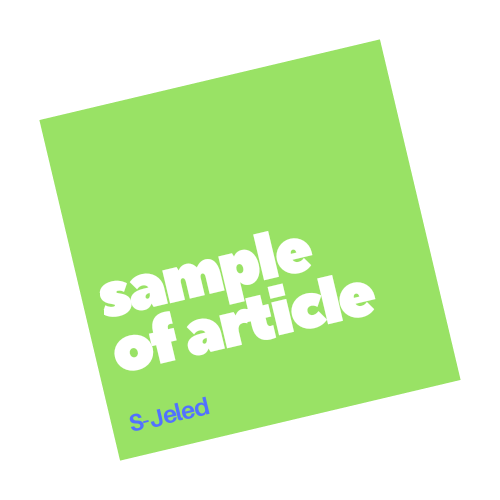A CASE STUDY OF STUDENTS’ DIFFICULTIES IN LEARNING CONDITIONAL SENTENCE AT THE ELEVENTH GRADE STUDENTS’ OF SMA N 4 PURWOREJO IN THE ACADEMIC YEAR OF 2016/2017
Abstract
Conditional sentence becomes one of materials in grammar that is complex and difficult to be used by the students especially in senior high school. Identifying the difficulties of conditional sentence is essential to know how well the students master the materials. The objectives of this research are to describe the most difficult types of conditional sentence used by the students and to identify why the students get difficulties in learning conditional sentence. This research uses descriptive qualitative research. The subject of this research is the eleventh grade students (Class XI Bahasa) of SMA N 4 Purworejo. From the findings that the researcher has done, conditional sentence type 3 became the most difficult one. Based on the test, for each type of conditional sentence, type 3 is the highest with the total number of wrong answer are 116 (47.5%), then type 2 with the total number of wrong answer are 84 (34.4%), while type 1 is the lowest with the total number of wrong answer are 44 (18.1%). Added by the result of questionnaire as supporting instruments, the most difficult type of conditional sentence is conditional sentence type 3. The result shows that three students strongly agree and twenty students agree that conditional sentence type 3 is difficult. Then, one student strongly agrees and fourteen students agree that conditional sentence type 2 is difficult. While, just nine students agree that conditional type 1 is difficult. Morever, from the result of the interview and questionnaire, the researcher identifies the students’ difficulties in learning conditional sentence, they are the highest graduation is students are lack of vocabulary (66.67%), the second is having to eagerness to master the material (62.34%), the third is having negative attitude toward teaching and learning process (56.79%), the fourth is environment impact to learn English (55.55%), the fifth is not paying attention to the material (50.93%), the sixth is having negative attitude towards English and grammar (54.32%), and the last is the condition of the facilities is not good (22.22%).
Keywords : Students Difficulties, Conditional Sentence, result
Full Text:
PDF TextReferences
Edi Sunjayanto Masykuri, S. W., Marcelo Perez. (2019). UNDERSTANDING PERSONAL INTENTION BY ELABORATING SPEECH FUNCTION USING SOCIAL MEDIA INTERNATIONAL WHATSAPP GROUP. The Proceeding 2nd International Conference on Education.
Edition, S., Masykuri, E. S., Studi, P., Bahasa, P., & Purworejo, U. M. (2016). SELF-MOTIVATION IN USING ENGLISH ON GROUP PRESENTATION IN STUDENT OF SMK MUHAMMADIYAH KAJEN. May, 95–100.
F, U., Fakhrudin, M., Sunjayanto Masykuri, E., & Sholeh, K. (2019). Analysis Varied Style of Conversation by Phone in Indonesian Teaching Learning. International Conference on Education, Universitas Muhammadiyah Purworejo.
Khotimah, K., Sunjayanto, E., & Istiqhfarin, I. (2017). COMBINING NEW TECHNOLOGY IN ELT TO CREATE INNOVATION IN STUDENT’S LEARNING. 1(01).
Latifah, E. S. M. M. W., & Nuraini, F. (2017). PRAGMATIC STUDIES: THE USE OF CODE-SWITCHING IN JAVANESE ART PERFORMANCE DONE BY STUDENTS OF SMPN 1 KESESI KABUPATEN PEKALONGAN. 2(01).
Maskuri, E., Hakim, Y., Ashari, A., & Supriyono, S. (2018). Integrated Technology And Mutual Participation For Changing Communities Socially, Economically And Religiously. Proceedings of the 1st International Conference on Science and Technology for an Internet of Things.
Masykuri, E. S. (2014). The Non-Observance of Cooperative Principle in the Comic Strip The Adventure of Tintin. 1(1), 118–124.
Masykuri, E. S. (2015). Analysis the Clauses Using Modal with Perfect Infinitive on Novel the Other Side of Midnight and Its Translation in Bahasa Indonesia. Jurnal Pendidikan Surya Edukasi, 1(1), 121670.
Masykuri, E. S. (2017). Three Character Building by Using Comik Wayang. Jurnal Pendidikan Surya Edukasi, 2(2), 1–13.
Nurhadi, R., & Masykuri, E. S. (2018). HATE SPEECH BASED ON PRAGMATICS STUDIES IN SOCIAL MEDIA. 1(1).
DOI: https://doi.org/10.37729/s-jeled.v1i15.5805
Refbacks
- There are currently no refbacks.
Scripta
ISSN. 2302-6677
Publisher: Department of English Language Education, Universitas Muhammadiyah Purworejo, Jl. KH. Ahmad Dahlan 3 & 6 Purworejo 54111, Jawa Tengah, Indonesia, E-mail:pbiumpwr20@gmail.com, Telp: 0275-321494
Indexed Abstract:

Ciptaan disebarluaskan di bawah Lisensi Creative Commons Atribusi-BerbagiSerupa 4.0 Internasional.



